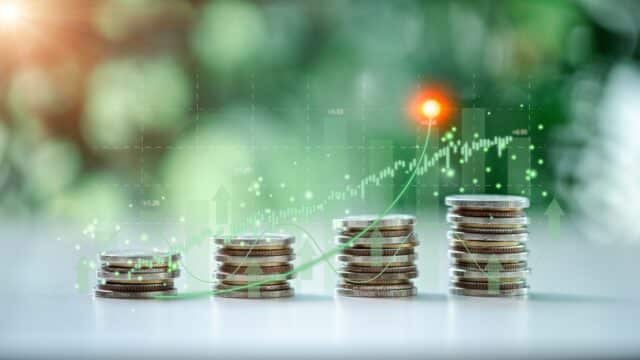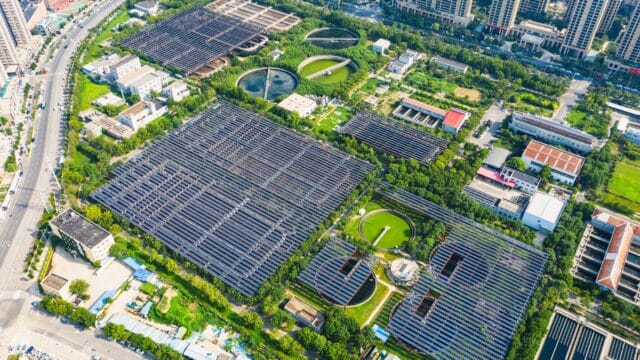Articles
Renewable Energy Investing Needs in 2023
The clean energy transition needs private capital that works in concert with favourable policies, regulations, decarbonisation goals and green capital market development.
COP28: Qatari and US LNG Uptick To Throw Climate Goals Into Chaos
COP28 Dubai could be jeopardised by massive new LNG investment by Qatar and the US as the world attempts to move away from fossil fuels.
Ammonia Fuel: Powering Global Decarbonisation Efforts
Ammonia, generally used as a major component of fertiliser, is now being seen as a low-carbon fuel source. Yet, before this becomes viable green ammonia production technology must improve.
Oil Market Forecast 2023: Oil To Peak and Renewables To Accelerate
While the oil market for combustion purposes is likely to peak by 2028, according to the IEA, the Asia-Pacific region will continue to push global oil demand. But, with oil demand declining, will developing Asia continue to lock itself into a carbon-intensive future?

Bangladesh’s Energy Needs and a Fair and Just Energy Transition
The switch towards renewable energy will not be the main threat to Bangladeshis' jobs and well-being. It's climate change.
The Future Of Hydrogen: Powering The World
Leading international organisations consider green hydrogen a critical part of the world's future energy mix. Public and private sector support will reduce green hydrogen costs and drive technological advancements, boosting demand.
The Biggest Renewable Energy Market Jump in 2023 and 2024
The IEA's June 2023 Renewable Energy Market Update forecasts an unprecedented wind and solar power boom globally.
Hydrogen Cost: Can We Afford It?
Due to an immature market and technology, green hydrogen is not yet cost-competitive with fossil fuel-derived hydrogen. Government policy will be crucial in reducing these costs by facilitating private sector involvement and developing market demand.
Solar Energy Investment is Expected to Overtake Oil Production For the First Time
While investments in fossil fuels are slowing down, the IEA's World Energy Investment Report 2023 says they remain way above the levels needed to reach net-zero by 2050.
The Uses of Hydrogen: A Catalyst for a Sustainable Future
Hydrogen is a common raw material used in many industries but is primarily produced with fossil fuels. If these industries switch to green hydrogen, it will significantly impact global greenhouse gas emissions.

Vietnam Has Approved the PDP8: What Comes Next?
The approval of the PDP8 is finally here. While not without its potential flaws, the plan allows Vietnam to start leaping towards its net-zero by 2050 target – a moment that energy investors have long been waiting for.
Taking to the Streets of Jakarta, K-pop Fans Call Out Hyundai’s Greenwashing
KPop4Planet launched the "Hyundai, Drop Coal" campaign to call for Hyundai to live by its commitment to achieving net zero by 2045.
Overcoming the Challenge of Hydrogen Storage
Hydrogen storage is one of the main building blocks for green hydrogen adoption. However, hydrogen has several characteristics that make it difficult to store effectively at scale. Ongoing research, development and investment are critical for overcoming these concerns.
MHI Greenwashing Tactics Demand Closer Scrutiny
Mitsubishi Heavy Industries (MHI) is pushing its net-zero emissions by 2040 pledge at full force. But, its strategy includes relying on gas-fired power projects, questionable carbon capture technology and profiting as a major carbon credit broker. These tactics demand closer media scrutiny and overall environmental monitoring.
Most Popular
Most Popular
Categories
-
10
-
34
-
126
-
4
-
17
-
46
-
52
-
11
-
10
-
15
-
24
-
6
-
1
-
5
-
6
-
283
-
200
-
17
-
24
-
1
-
1
-
23
-
41
-
44
-
88
-
18
-
86
-
41
-
17
-
11
-
43
-
54
-
86
-
299
-
22
-
44
-
36
-
11
-
42
-
36


